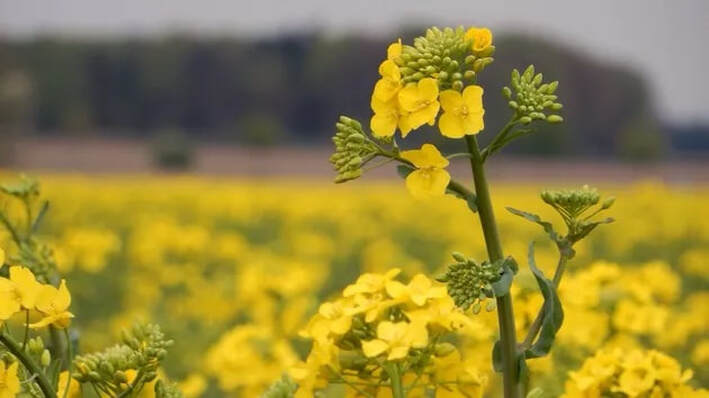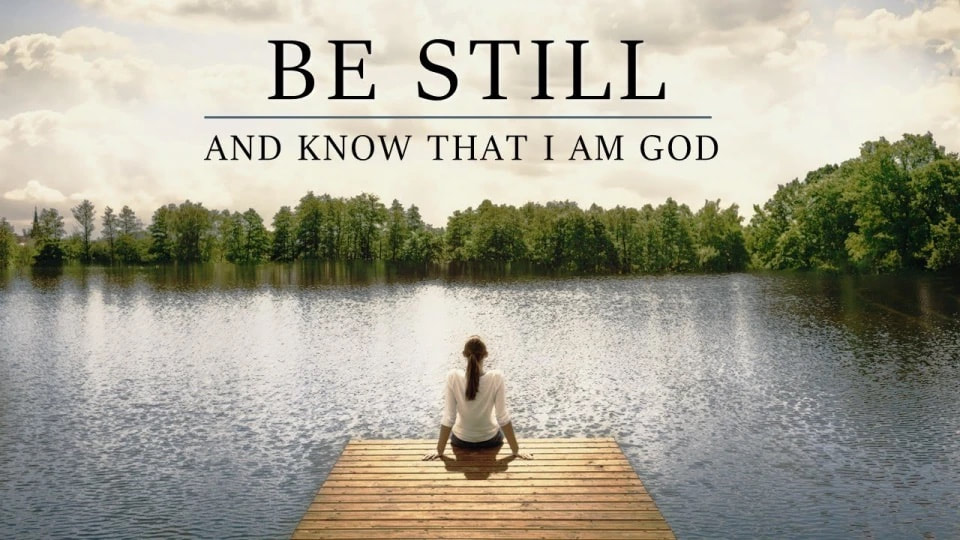
PLANTING CHAOS
Sunday, July 30, 2023
First Congregational Church of Cheshire
© the Rev. Dr. James Campbell
Matthew 13:31-33, 44-52
He put before them another parable: “The kingdom of heaven is like a mustard seed that someone took and sowed in his field; it is the smallest of all the seeds, but when it has grown it is the greatest of shrubs and becomes a tree, so that the birds of the air come and make nests in its branches.” He told them another parable: “The kingdom of heaven is like yeast that a woman took and mixed in with three measures of flour until all of it was leavened.”
“The kingdom of heaven is like treasure hidden in a field, which someone found and hid; then in his joy he goes and sells all that he has and buys that field. “Again, the kingdom of heaven is like a merchant in search of fine pearls; on finding one pearl of great value, he went and sold all that he had and bought it. “Again, the kingdom of heaven is like a net that was thrown into the sea and caught fish of every kind; when it was full, they drew it ashore, sat down, and put the good into baskets but threw out the bad. So it will be at the end of the age. The angels will come out and separate the evil from the righteous and throw them into the furnace of fire, where there will be weeping and gnashing of teeth. “Have you understood all this?” They answered, “Yes.” And he said to them, “Therefore every scribe who has been trained for the kingdom of heaven is like the master of a household who brings out of his treasure what is new and what is old.”
True confession: I am a bit of a neat freak. I really like order and decorum. “A place for everything and everything in its place.” Stop by my church office sometime and you might wonder if I even work there.
Over time I’ve done a lot of thinking about my passion for neatness and what it might represent psychologically. And I’ve come to realize that being a neat freak is, in part, my rather vain attempt at imposing order on what I experience as a disorderly and chaotic world. Being neat lets me live in the illusion of control.
Be that as it may, there is also something deeply spiritual about order. In Jewish faith, a well-ordered life is a witness to the orderly love of God; a way to mimic the design and purpose of the whole creation. And in the Hebrew Scriptures, there are countless regulations about creating order and keeping things separated into neat categories. These regulations are sometimes referred to as the Law of Diverse Kinds. This law was meant to keep the sacred and the profane clearly separated from one another. And you can still see some of those laws at work in a kosher household.
One of the Laws of Diverse Kinds prohibits mixing various kinds of plants in the same plot of land. In other words, keep the corn with the corn, the wheat with the wheat, the barley with the barley. It’s God’s way of saying “a place for everything and everything in its place.”
I have to admit that it was strangely comforting to read about the Law of Diverse Kinds because it seemed a justification for my own love of order. I’m just doing what the Lord does! Well, maybe…
The problem with a slavish devotion to order is that it very soon becomes a compulsion. The need to impose order on others quickly becomes dictatorship. A devotion to order can squelch creativity and freedom. It can be a tyrant.
Now Jesus, the devout Jew, knew all about the Law of Diverse Kinds. But he also proclaimed that the Kingdom of God can be quite chaotic. To illustrate that point, Jesus told stories about yeast and hidden treasures and pearls and fish… and mustard seeds.
“The kingdom of heaven is like a mustard seed that someone took and sowed in his field; it is the smallest of all the seeds, but when it has grown it is the greatest of shrubs and becomes a tree, so that the birds of the air come and make nests in its branches.”
My earliest memory of mustard seeds comes from Sunday School. One day, my teacher brought mustard seeds to class to show us just how tiny they were, and to illustrate that any act of kindness, no matter how small, has in it the potential to grow into something much bigger. And haven’t we all known that to be the case: a smile at a stranger becomes the beginning of a great friendship; a home Bible study group grows into a new church start; one concerned person picking up trash becomes a conservation group. From the smallest acts of goodness, mercy, justice, and love - the Reign of God can blossom and grow and spread.
That’s a good lesson. And it’s also quite safe. But this story is actually far more subversive than that. Because while we might hear a rather bucolic tale of a garden and birds nesting in leafy branches, that first audience heard a tale of chaos.
You see, for the people of that time, it was an outrageous idea to imagine any farmer in his right mind would plant mustard in his field. Pliny the Elder, the Roman horticulturalist and contemporary of Jesus, warned that mustard “…when it is sown, it is scarcely possible to get the place free of it, as the seed when it falls germinates at once.” And each mustard plant gives off thousands of seeds. And that, Jesus said, is what the Reign of God looks like: invasive and impossible to control.
And if that weren’t bad enough, when the mustard gets big enough, it attracts birds to the garden who nest in its branches. And if you have ever planted a garden, then you know that birds are not just sweet little creatures. Birds are the competition. They see all your delicious produce as their free lunch.
In the Bible, birds often represent the people of the earth in all their great variety: Gentiles and pagans, the poor and oppressed, slaves and women and refugees and children and sexual minorities. And all those folks, Jesus said, find a shady home in the invasive and chaotic Reign of God.
So you see, this seemingly innocuous little tale was actually Jesus’s in-your-face confrontation to the religious authorities who made more of order than they did of compassion and kindness and justice. And why not? You see, society was working just fine for them. It always seems to work just fine for those who are making the rules for everyone else. -- So, when Jesus told this story and it thrilled his audience of dirty birds, he was suddenly a real and present threat to the religious and social order. And when you understand that threat, then it suddenly makes sense why he ended up on a Roman cross. It was his message of divine chaos that undid him.
The traditional way to interpret this parable is that the farmer is God. God is the one who walks into the fields of the world and purposefully plants an invasive species, and then invites all the dirty birds to rest in its branches. And while that might be an uncomfortable image of God, it’s still rather safe. After all, if God is the one creating chaos, then God can take all the heat for the resultant disruption.
But there’s another way to see this story. What if the farmer is not God, but us? Think about it. If the Kingdom of God is inside of us, as Jesus said; if we have been called to imitate Christ in the world, then maybe we are the chaos-planters. Maybe we’re the ones tossing mustards seeds hither and yon. And that, quite frankly, is a much more uncomfortable idea for most of us. Because, you know, we’re nice people. This is a nice, respectable church. We don’t offend anyone. And the system works for most of us. But is that all we are called to?
Now, I am not suggesting that we need to become something we are not. Churches, like people, have personalities and histories and cultures. But I am suggesting that just being that nice church in the center of town is probably not what Jesus had in mind when he told this story. And I am suggesting that one way we can live into this subversive Gospel is to simply sink more deeply into who and what we have already said we are.
And who are we? Well, primarily, we are followers of Jesus the Christ. And Jesus told us to love everyone; to refrain from judgments of any kind; to feed the hungry and clothe the naked and extend kindness to aliens and visit the prisoners. Now, those things might not seem very subversive or chaotic at first, but in this increasingly angry and divided world and nation, to proclaim that absolutely everyone, without exception, is a beloved child of God, worthy of respect and dignity and justice and a place at the table – well, that will seem to lots of folks like planting chaos. -- In a world in which political ideologies and affiliations turn our opponents into mortal enemy in a kind of blood sport; in a country where we blithely saw our opponents are not real Americans - to sit in this room together and to declare that our devotion to Jesus supersedes all our other allegiances – well, that’s planting chaos. To speak boldly against the grievous sin of racism that continues to lift its ugly head – that’s planting chaos. To be Open and Affirming during a time when the rights of LGBTQ+ people are being systematically subverted, that’s planting chaos. To be a Green Congregation, calling us to account in world still in denial, that’s planting chaos. Even things like collecting diapers and backpacks and baby formula is a witness against a society that still has not learned how to include everyone.
So no, we don’t have to be something we are not. We just have to be MORE of what we say we are. And that means following Jesus into the fields of this world, singing and dancing and scattering seeds of divine chaos; seeds of kindness, justice, and love. And if that attracts some of those dirty birds, well, maybe we can scoot over and make some more room on the branch.



 RSS Feed
RSS Feed